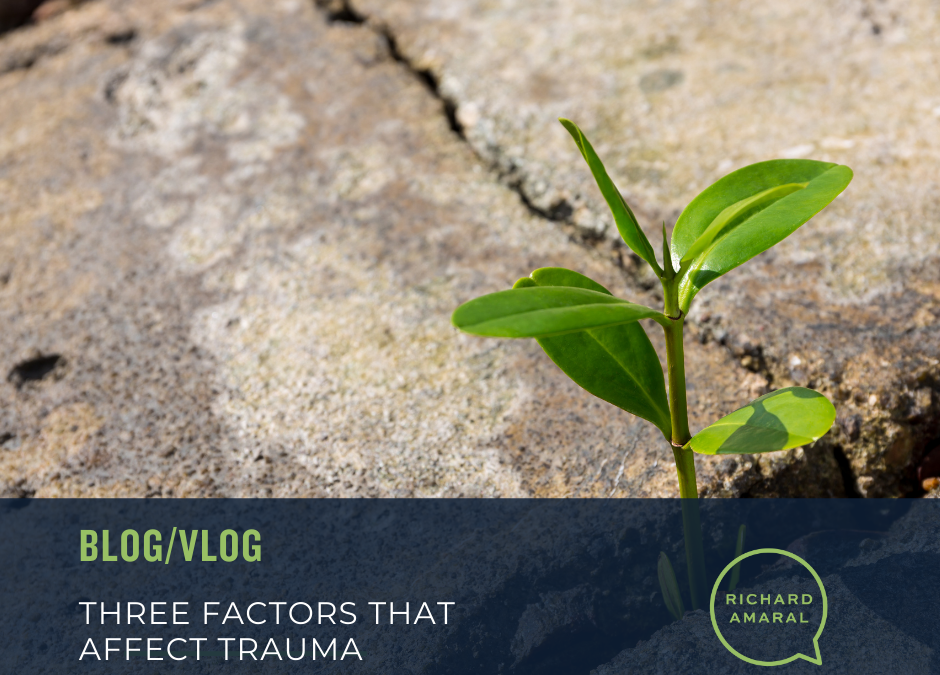Ever wonder why some people get traumatized over something relatively minor while others seem to handle adversity with little stress?
While there is no one specific answer, a few factors can contribute to why some people seem to bounce back while others do not.
In “The PTSD Workbook” (3rd ed.), Williams and Poijula list three different categories of factors that contribute to one’s ability to handle trauma. These are the pre-event, the event itself, and the post-event.
The Pre-Event
The Pre-event refers to factors that research shows can put a person at risk of being traumatized or make a person more likely to interpret events as traumatic. Here are three of these factors:
1. Childhood trauma. One of the risk factors for trauma is whether or not the survivor experienced trauma in their childhood. Experiencing traumatic events in adolescence makes it difficult for a person to cope with distressing events in adulthood.
2. Early substance use. Does trauma lead to substance use, or does substance use make it difficult to cope with trauma? Either way, individuals who experience problematic and regular substance use early in life seem to have difficulty processing trauma as an adult.
3. Less functional coping strategies. People who have poor coping strategies for dealing with stress or other unpleasant emotions also have difficulty overcoming trauma.
The Event Itself
Here are some factors that will contribute to whether or not an event will be traumatizing.
1. Age. The reality is that younger people are more at risk for developing trauma-related disorders than older people. For example, among US war veterans, most soldiers diagnosed with PTSD are between the ages of 18-29. Essentially, as you get older, you become better at managing adversity and crises.
2. Frequency of trauma. Did something traumatic happen just once, or is it something that a person keeps re-experiencing? Sometimes, it’s the accumulation of traumatic events which leads to a diagnosis of posttraumatic stress disorder.
The Post-Event
Here are two factors that influence how well a person will be able to handle life after trauma.
1. Lack of social support. Having a friend, family member, or a community can help to buffer the consequences of trauma. Conversely, feeling alone and isolated can put you at risk for long-term psychological pain.
2. Being unable to find meaning in the event. One of the things I’ve noticed in clients who can quickly recover from a traumatic event is whether they find meaning in pain and adversity. “There’s a bigger lesson I’m going to learn from this,” or “I know that this will make me stronger in some way” are examples of statements I hear from those who begin to heal from trauma.
In conclusion
You can’t change the pre-event, nor can you change the event itself. But you do you have the power to change the post-event — how you handle and respond to trauma.
That’s what this week’s video is all about.
I hope this tip helps with your growth and ability to handle adversity.
Richard

